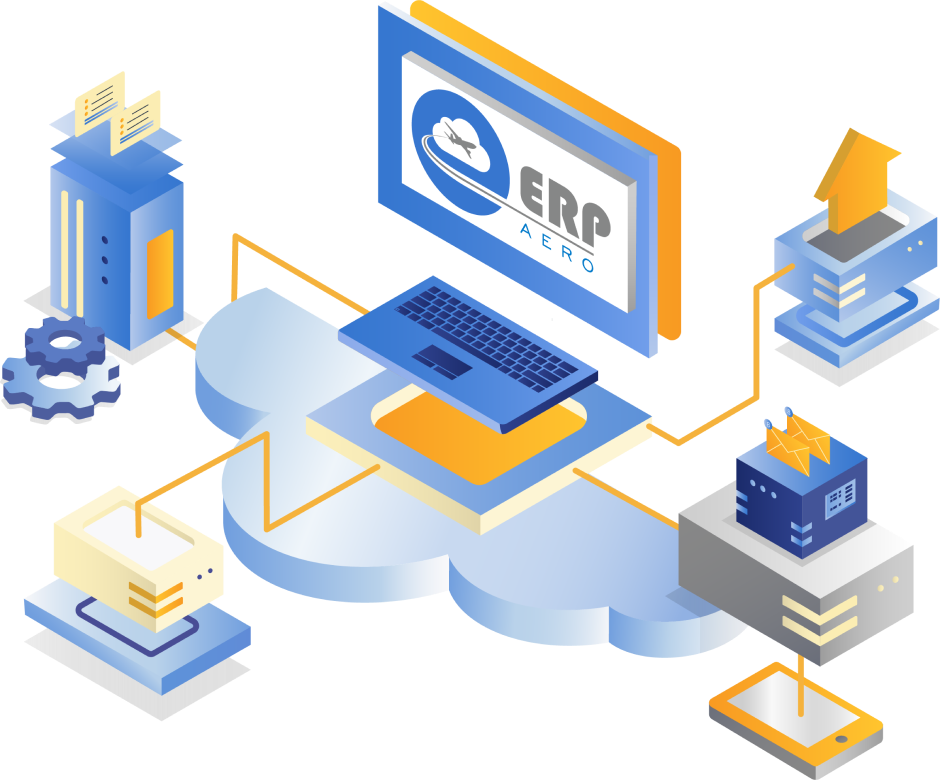Enterprise Resource Planning (ERP) is a comprehensive business management software that has become a vital tool in the aviation industry. ERP systems provide a centralized, real-time view of critical business processes, enabling organizations to streamline operations and make better-informed decisions.
In this article, we will explore the benefits of ERP for aviation and how it can transform the industry.
What ERP is all About?
ERP is a software application that manages and integrates a company’s core business processes, including finance, human resources, procurement, inventory management, and customer relationship management. An ERP for aerospace system provides a single source of truth for business data and automates routine tasks, allowing organizations to focus on more strategic activities.
ERP for Aviation

Aviation is a complex and highly regulated industry with multiple stakeholders, including airlines, airports, maintenance, repair, and overhaul (MRO) facilities, and regulatory bodies. The aviation industry also has unique requirements, such as safety management, maintenance tracking, and compliance reporting. ERP systems can help aviation companies meet these requirements and improve their operations in several ways:
Streamline Operations
An ERP system can streamline the aviation industry’s operations by integrating and automating various business processes. For example, an airline can use an ERP system to manage flight operations, scheduling, crew management, and passenger reservations.
MRO facilities can use an ERP system to manage their inventory, procurement, and maintenance activities, while airports can use it to manage their operations and ground handling services.
Improve Visibility
ERP systems provide real-time data visibility, which can help aviation companies make informed decisions. For example, an airline can use an ERP system to monitor its flight schedules, fuel consumption, and maintenance activities.
An MRO facility can use it to track its inventory levels, schedule maintenance, and monitor the performance of its equipment. By providing a real-time view of business data, ERP systems can help aviation companies identify issues and take corrective actions quickly.
Ensure Compliance
The aviation industry is subject to various regulations and standards, such as the Federal Aviation Administration (FAA) regulations and International Air Transport Association (IATA) standards.
An ERP system can help aviation companies ensure compliance with these regulations by providing real-time data on safety management, maintenance tracking, and regulatory reporting. This can help companies avoid costly penalties and ensure that they operate safely and efficiently.
Increase Efficiency
An ERP system can help aviation companies increase their efficiency by automating routine tasks, reducing manual errors, and streamlining workflows.
For example, an airline can use an ERP system to automate its crew scheduling, reduce crew fatigue, and improve its on-time performance. MRO facilities can use an ERP system to automate maintenance activities, reduce downtime, and improve the reliability of their equipment.
Final Words
ERP systems are transforming the aviation industry by providing a single source of truth for business data, improving visibility, ensuring compliance, and increasing efficiency.
By streamlining operations, reducing manual errors, and automating routine tasks, ERP systems can help aviation companies improve their operations and make better-informed decisions. As the aviation industry continues to grow and evolve, ERP systems will play an increasingly important role in ensuring its safety, efficiency, and profitability.

One thought on “The Benefits of Implementing an Aviation ERP System”
Comments are closed.